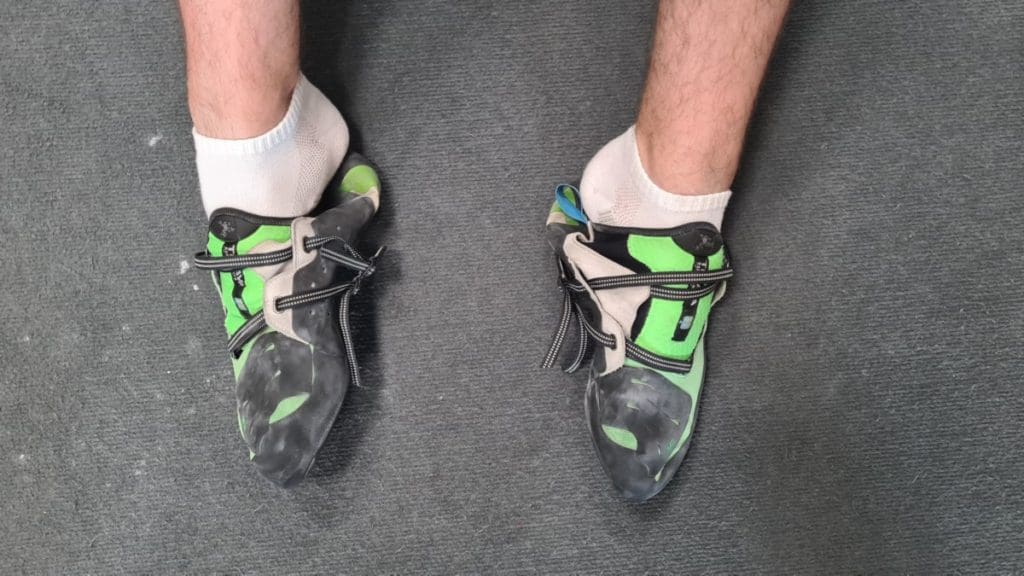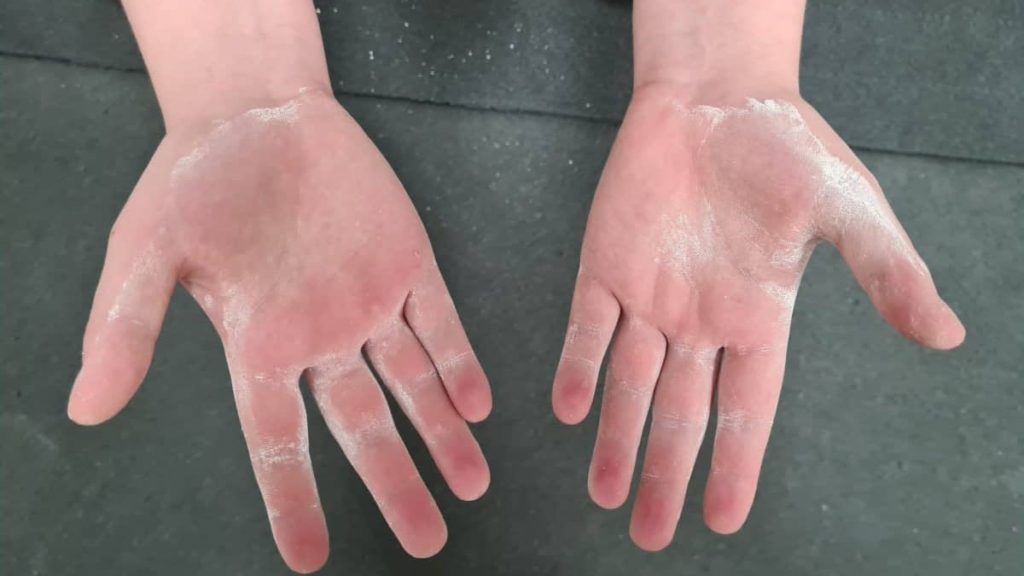
Giving your body the appropriate time to recover after an intense bouldering session is very important, as you won’t be able to go to your limits if you rest too little or too long. However the resting period for different skill levels of climbers is very different, due to their body getting used to the sport.
As a general rule beginners should rest 2-3 days between the next bouldering session, intermediate climbers 1-2 and advanced climbers can boulder multiple days in a row, but should also take atleast one rest day a week. Depending on the intensity of the climbing session the resting duration may vary.
However there are also many other factors that can increase or deacrease the amount of days you need to rest between your bouldering sessions. To learn how you optimize the resting periods read the next subheadings below.
Resting Periods for Beginners, Intermadiate and Advanced Climbers
As a beginner your muscles recover faster than your joints, tendons and bones. They need more time to get used to the new pressure that climbing applies on them. Your muscles will recover in 1-2 days most of the times, even as a beginner, but as already mentioned your entire body needs atleast 2-3 days to fully recover and be ready for the next climbing session.
It is very important that you give your body the time it needs to recover your muscles, joints, tendons and other parts of your body. If you start your next bouldering session before you are recoverd, you won’t have enough power to go to your limits and you will need an even longer resting period now, due to the interrupted recovery. If you want to know more about the recovery of your body in deatil after climbing you can buy a great book about it here.
It is like a snowball effect. If you keep climbing without being fully recoverd you will always have less power and need more resting time to recover. In addition to that the risk of injuries also increases exponentially. Muscles, tendons, joints and bones that are not fully recoverd are very susceptible for injuries.
If you already have intermadite bouldering exerience your body is used to the sport and the resting duration is decreasing because of that. For most climbers with intermadite climbing skills 1-2 days of good rest should be enough to fully recover.
However there is no clear line between beginner, intermediate and advanced. You have to categorize yourself depending on your climbing experience. Also the recommended resting time is just a suggestions that will fit for most people.
If you are an advanced climber bouldering multiple days in a row isn’t a problem for your body as it is so used to the sport. Altough climbing every day could be a good habit, I have to advice agaist it. From time to time it is good to have rest days, atleast one per week.
| Skill level of climber | Recommended duration of rest days between climbing sessions |
| Beginner | 2-3 days |
| Intermadiate | 1-2 days |
| Advanced | 0-1, atleast one rest day a week |
Sometimes rest days also come naturally, when you injured yourself and you are not able to climb because of that or you simply just don’t have time. Doing a different sport that is low on impact on your rest day can also be very helpful and improve recovery actively.
The Impact of Intensity on Your Resting Period
The more intense the bouldering session is the longer your body needs to recover from it. The duration of the climbing session is also included in the intensity. If you want to know how long a bouldering session should be, you can find it out here. So, the highest intensity is achived when you only climb hard boulders that are on the limit of abilities for a long time like 3 hours.
This will wreck your body completly and you will have to rest a couple of days longer then you would on average, when you climbed with a medium intensity for 1-2 hours. Because intensity has such a high impact on the days you need to rest between your bouldering session you should mostly keep it at medium.
If you want to really go to your limits in one session and go with high intensity you could then only climb very easy boulders the next session and make it technique oriented. This way the intensity is balanced and you don’t need different resting periods.
Recovery of Your Skin From Bouldering
Climbing in general and especially bouldering has high impact on your hands and the skin. Because you grab all the holds with your bare hands injuries on the skin are very common. Often the first skin layer on your hand is damaged or there are blisters after a bouldering session. If you want to learn how you deal with all kinds of skin injuries from climbing and how long they need to heal click here.
Fortunately the skin on your hands recovers pretty quickly and gets thicker every time you climb, so injuries on your skin get less and less likely after a while climbing. Products like hand cream for climbers can also help the skin to recover faster and better.
Generally I would advice you to stop climbing once your skin seriously gets injured or tape it properly, because it gets worse really quick, once the skin is starting to rip off. Just wait a few days until it’s recovered and then start your next climbing session.

The Impact of a Good Diet and Sleep Schedule on Resting Duration
A good diet really helps your body to revocer faster, as you give it the right nutrients it needs to do so. Especially protein and amino acids help the muscle to recover and grow.
Having a good sleep schedule where you get atleast 7 hours of quality sleep is also very benefitial for recovery from climbing as your body actively recovers during sleep. It is also important to mention that sleeping too much can be bad for your body, as you will feel tired and unpowered.
However having a healthy diet and sleeping 7-8 hours a day should be goal in general and not only because you can climb more often when you recover faster. It really improves your everyday life, as you will feel more energetic and motivated to do hard things.
Final Thoughts
When it comes to rest we should really listen to our bodies. Rest as long as your body tells you to and only start climbing again when you feel ready to do so. Having enough rest is so much more valuable than climbing more often without resting properly.
Resting correctly will increase your performance, progress and general well being. Also if you love climbing and want to do it every day, try to listen to your body, as it is a really good adviser in this case.
